Aluminium Can Play A Pivotal Role In The Changing Face Of The Automotive Sector
- By MT Bureau
- October 13, 2020
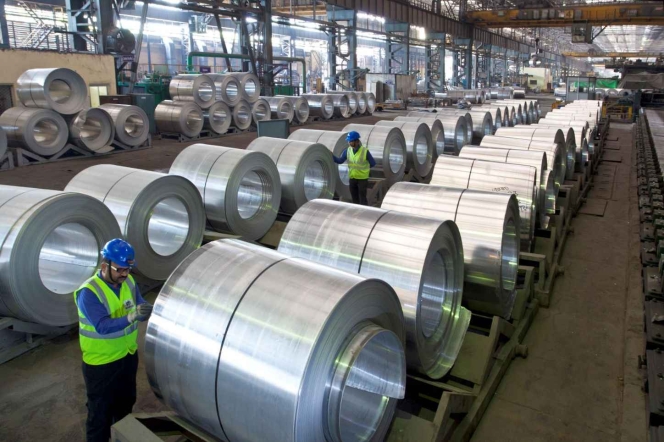

Currently, India’s foundry market for automotive components is small (only 10 percent of total foundry market — 10 million of cast iron + aluminium) in comparison to USA’s foundry market, which is at 14 million tonnes per annum, of which 3.3 million is aluminium (24 percent). With an increasing focus on higher performance with better safety and lower emission, this gap is going to shrink in the coming years, anticipates Ajay Kapur, CEO – Aluminium & Power Business, Vedanta Aluminium.
“There is immense scope for Indian aluminium producers to tap into the emerging market in the automotive sector,” said Kapur. Vedanta Aluminium was the first in India to supply PFA (primary foundry alloy) to the domestic auto sector. Before, the launch of PFA by the company, India’s entire PFA demand was being met through imports, even though the country has the world’s second-largest aluminium production capacity. Looking at the potential of the auto market and its import dependency, the company decided to tap into the opportunity and develop indigenous capabilities at its state-of-the-art facilities in Jharsuguda and BALCO to meet that demand. Currently, the company has a PFA casting capacity of 240KT spread across its plants in Odisha and Chhattisgarh.
“Primary aluminium producers develop PFAs which are customised to suit the exact needs of automakers in terms of performance, strength, durability, etc. Significant R&D and technical expertise go into developing PFAs, resulting in excellent metal quality and outstanding castability, which makes these alloys the preferred choice for the automotive industry,” explained Kapur. PFAs are ideal for aluminium alloy wheels, cylinder heads and brakes. The company also anticipates that with an increased focus on reduction of vehicle weight with higher safety performance, automotive parts critical to safety will be made from PFA instead of cast iron to offer higher strength and nearly double absorption of crash energy. “Besides, aluminium PFAs will always have the added advantage of cost-saving on fuel and maintenance,” added Kapur.
Vedanta Aluminium has started steadily supplying PFAs to OEMs and ancillaries in wheel manufacturing in India. “Our proactive move to expand business on this front helped us on-board some of the most reputed equipment manufacturers and auto ancillaries as our clients, and we have received a very positive response from them. Encouraged by that, we will soon look to expand our alloy portfolio for supporting manufacturing of cylinder heads, ABS brakes and certain key applications where traditional materials can easily get substituted with aluminium alloy. We are also exploring prospects of long-term investments by auto ancillaries near our aluminium smelters so that they may leverage cost savings in terms of freight, re-melting and electricity,” said Kapur.

The company, according to him, is well-positioned to cater to the current and emerging needs of the Indian auto sector, offering a broad range of products that find usage across the automotive value chain – from casting to extrusion. “When choosing suppliers for alloys, automotive players should look for companies having high-quality casting facilities, sophisticated R&D facilities and technological prowess for developing customised high-performance alloys for their specific needs, and finally, having robust after-sales technical support; USPs that have earned us the trust of our clients,” he added.
Aluminium is the second most used metal in the world after steel, today, and, according to Kapur, it has the potential to become the most important commercial metal in the future. “Most developed countries have already designated aluminium as a core industry. Aluminium holds strategic importance for the economy as the metal of choice for all kinds of transportation, power, aerospace, defence, building and construction needs. So, given the role it plays in supporting the core sectors meet the Government’s ‘Make in India’ initiative, we expect its application to only expand with time,” said Kapur.
The metal’s usage in the transportation sector has been rapidly increasing as it offers an environment-friendly and cost-effective way to increase performance, boost fuel economy and reduce emissions while maintaining or improving safety and durability. Aluminium is substantially lighter than its counterparts, offering a significant reduction in weight, which has a direct impact on fuel consumption and carbon emissions.

The metal also has a higher strength-to-weight ratio compared to traditional materials that enable it to absorb twice the crash energy of mild steel, ensuring that vehicular performance enhancements do not come at the cost of safety. “Further, nearly 90 percent of all the aluminium used in a vehicle is recycled at the end of its lifecycle. The energy required to recycle aluminium is only five percent of the energy required to produce the metal. With all these advantages, aluminium can play a pivotal role in the changing face of the automotive sector,” said Kapur.

Aluminium alloys are used by the Indian auto industry majorly as alloy wheels. Around 95 percent of two-wheelers include aluminium, averaging at 7kg per bike, taking total consumption of aluminium alloy in this segment to 115KTPA (kilo tons per annum). Whereas, only 20 percent of four-wheelers use aluminium, majorly in high-end models, which max out at 40kg per car. “The crux of the matter is, in India, we are yet to explore more applications of aluminium in the automotive industry akin to our global peers. For example, in developed countries, around 21 PFAs are used in the automotive segment to achieve light-weighting in the form of various auto parts and components. In India, we majorly use PFAs only for manufacturing alloy wheels and to some extent, for cylinder heads. So, there is immense potential for usage of aluminium in other auto parts like engine, suspension, front end carrier, instrument panel support, rear frame, chassis and many more,” said Kapur.
Shortly, the company expands its alloy portfolio for supporting manufacturing of cylinder heads, ABS brakes and certain other applications where currently steel or iron is being used but can be substituted by suitable aluminium alloys to provide additional benefits. As the market for aluminium alloys in automotive segment expands with inclusion of newer applications, Vedanta Aluminium will look for opportunities to leverage its technological expertise and R&D capabilities to develop products customised to the needs of the market. Vedanta Aluminium is also open to collaborating with the downstream industry, to unlock the entire potential of aluminium used in the auto sector and cater to the rapidly evolving aluminium requirements of the Indian automotive industry.
In the Indian automotive market, one of the biggest challenges faced today is the increasing imports of auto components from China and other countries. The size of the auto components imports was USD 17.6 billion in FY19. Asia, the largest source of imports for Indian auto-components, had a share of 61 percent followed by Europe at 29 percent; North America at eight percent; Latin America and Africa at one percent each in FY19. China, with 27 percent, enjoyed the status of the largest exporter in the Indian automotive market.
“The potential of the aluminium industry should be acknowledged and recognised as a core sector with a National Aluminium Policy that will encourage, protect and boost the domestic aluminium industry. The domestic capability needs to be harnessed for critical sectors of national importance like defence, aerospace, aviation, transportation, infrastructure, electrification, housing, etc. We must make the vision of ‘Make in India’ a ground reality in these sectors, leveraging the potential of the entire aluminium value chain, from mining to end usage. Besides enhancing domestic capacity and reducing import dependency and subsequently trade deficit, it will also generate huge employment opportunities in our country which has a deep talent pool that needs to be capitalised for the realisation of our vision of a USD5 trillion economy. We are on the right path, but there is still a long way to go,” said Kapur.

The global economy is swiftly moving towards a cleaner, greener and more sustainable lifestyle. For more than a decade now, concerns about fuel efficiency have encouraged OEMs to replace steel with aluminium in vehicle bodies, doors, trunks, hoods, bumpers, crash boxes, brakes and wheels. With the advent of electric vehicles (EV), OEMs worldwide are focusing on exploring and applying new uses of aluminium. The need for lightweight battery casings and heat exchangers in electric vehicles, combined with autonomous vehicles’ demands for high visibility and structural integrity, is expected to exponentially increase the use of aluminium in cars, trucks and buses from now on. “Using aluminium in EVs has several advantages, foremost amongst which is the distance travelled per charge. Lighter the vehicle, the longer its range. Coming to better battery life, thanks to the metal’s thermal and anticorrosion properties, aluminium is ideal for battery frames. Demand for aluminium will also rise on account of infrastructure for serving EVs since the metal is commonly used as a housing material for EVs charging stations as well. While India is waking up to this future of automobiles, partnerships between different automotive industry bodies/institutions and auto companies for sharing knowledge and expertise will help fast-track development of electric vehicles in the country,” said Kapur. MT
ZF, BMW Sign Long-Term Supply Agreement For Drive Technologies
- By MT Bureau
- February 03, 2026
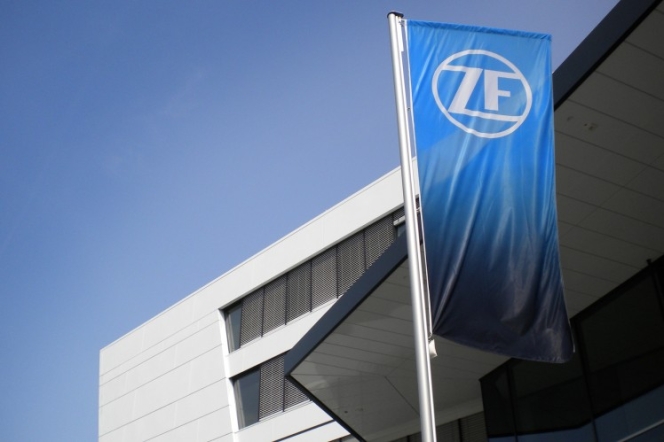
German tier 1 supplier ZF Friedrichshafen and the BMW Group have entered into a long-term supply agreement for passenger car drive systems. The contract, valued at several billion euros, extends until the late 2030s.
The agreement focuses on the supply and continued development of the 8-speed automatic transmission (8HP). The partners aim to support low-emission mobility and maintain technological flexibility during the industry transition.
A central component of the partnership is the technical evolution of the 8HP transmission kit to meet the requirements of electrified drives. The development will focus on increasing efficiency and performance for future vehicle concepts.
Mathias Miedreich, CEO of ZF, said, “Together with BMW, we are sending a strong signal for innovation, efficiency, and sustainability in an industry undergoing dynamic change. This agreement highlights the strategic importance of our 8-speed automatic transmission as a key technology for the transformation of drive systems.”
The duration of the contract provides both ZF and BMW with planning stability in a changing market. ZF aims to strengthen its position as a system supplier while reducing risks through close collaboration with the carmaker.
Sebastian Schmitt, Head of ZF's Electrified Drive Technologies division, explained, “The new agreement with BMW shows how important long-term planning horizons are for technological advancements. It creates clarity and stability for both companies and enables us to align the next generation of the 8HP specifically toward efficiency, performance, and long-term viability.”
Leapmotor Selects Aumovio For Safety Technologies
- By MT Bureau
- February 02, 2026
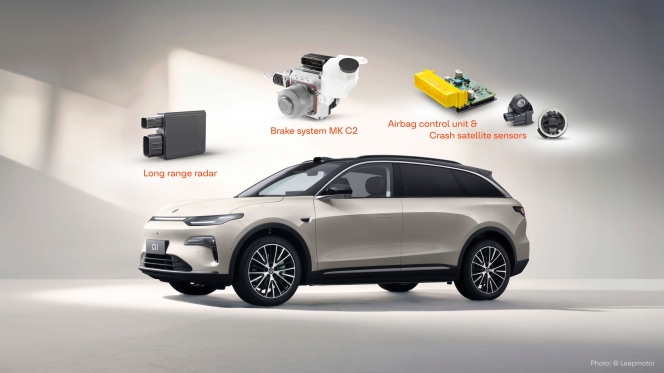
Aumovio has entered a supply agreement with Chinese electric vehicle manufacturer Leapmotor to provide safety components for the carmaker’s B and C platforms.
Several models within Leapmotor’s B platform now utilise Aumovio's long-range radar, electric parking brake and airbag control unit (ACU). Models on the C platform, including the C10, C11 and C16 SUVs, feature the latest generation of the MK C2 one-box brake system, alongside the long-range radar and ACU.
The project was completed with a development cycle approximately one-third shorter than traditional automotive timelines. Aumovio attributed its speed to ‘local-for-local’ strategy in China, where the company operates 20 sites and employs around 10,000 staff. In 2024, Aumovio held a 14 percent share of market revenue in the region.
The supplied technologies include:
- MK C2 Brake System: A unit combining the master cylinder, electronic brake system, and brake booster. It is produced locally in Shanghai.
- Long-Range Radar: A sensor with a detection range of up to 280 metres, used for driver assistance across both platforms.
- Airbag Control Unit (ACU): Integrated with crash satellite sensors, these components are manufactured in Changchun.
Boris Mergell, Head of the Safety and Motion business area at Aumovio, said, “Pairing ‘China speed’ with ‘German quality’ technologies helped us to support a rapid roll-out with our latest safety technologies. This underscores Aumovio’s course towards an adaptive powerhouse that works flexibly and closely with customers to innovate. It also shows that we continue to strengthen our customer relationships in the important market China.”
The partnership supports Leapmotor’s international presence. The B10 and B05 models, which feature Aumovio's ACU and radar technology, were showcased at the IAA 2025 in Munich as part of the manufacturer's European entry.
LTTS Secures Multi-Year Deal From Automotive OEM For Engineering And R&D
- By MT Bureau
- January 28, 2026
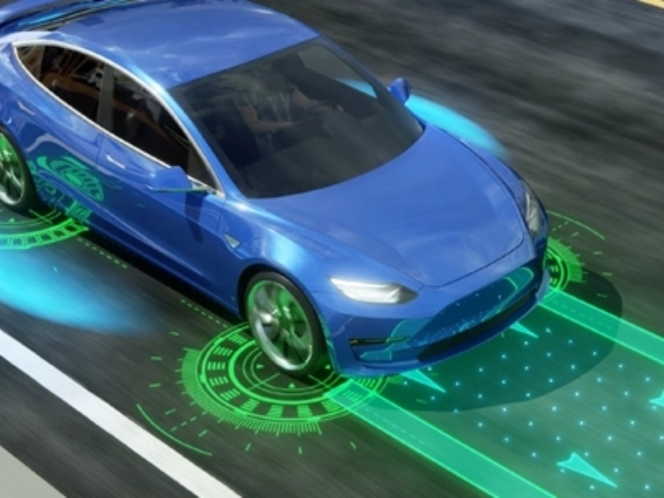
Bengaluru-headquartered ER&D company L&T Technology Services (LTTS) has announced a multi-year engagement within its mobility segment from an automotive manufacturer. The agreement involves software, connectivity and digital engineering services across vehicle technology domains. This win follows the company’s investments in R&D labs and mobility infrastructure designed for programs with global manufacturers.
The engagement covers mobility engineering capabilities, including embedded systems, digital platforms, verification and validation, cloud integration and cybersecurity. LTTS intends to use its engineering expertise and delivery frameworks to support the customer's technology roadmap.
At present, LTTS operates 22 design centres and 100 innovation labs globally.
The agreement strengthens the partnership between LTTS and the automotive manufacturer in the area of mobility engineering. The company provides design, development, and testing services across the mobility, sustainability, and tech segments.
Alind Saxena, Executive Director and President, Mobility and Tech at L&T Technology Services, said, “We are proud to deepen our partnership with the valued customer through this strategic engagement. LTTS brings together domain-led engineering, secure development practices and excellence in global delivery to accelerate the future of premium mobility. The win reflects the trust placed in our teams and our commitment to delivering world-class engineering at scale”.
Valeo And NATIX Network Partner To Develop Open-Source World Foundation Model
- By MT Bureau
- January 25, 2026
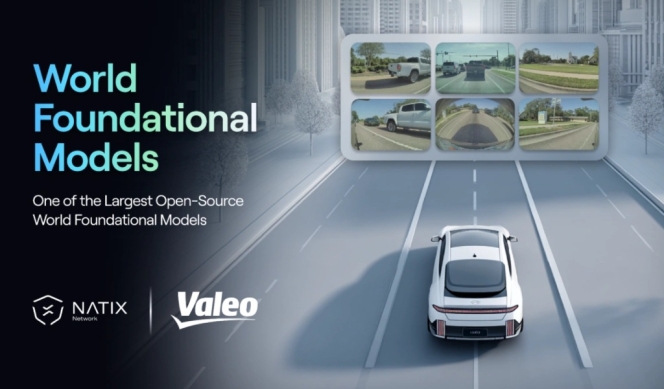
French technology company Valeo and NATIX Network have announced a partnership to develop a multi-camera World Foundation Model (WFM). The project combines Valeo’s research in artificial intelligence and generative modelling with NATIX’s decentralised physical infrastructure network (DePIN) to create an open-source platform for autonomous driving and robotics.
The initiative aims to move beyond perception-based models by creating a system capable of predicting future states and reasoning about physical interactions in a four-dimensional environment. The model will be trained using NATIX’s data network, which has collected 600,000 hours of video data across the US, Europe and Asia over seven months. This data provides the multi-camera inputs necessary for the spatial perception required by autonomous vehicles and robots.
The partnership builds upon Valeo’s existing open-source frameworks, VaViM (Video Autoregressive Model) and VaVAM (Video-Action Model). While these frameworks were previously trained primarily on front-camera datasets, the integration of NATIX’s multi-camera network expands the AI’s field of vision to 360 degrees.
Under the open-source framework, the partners will release models, datasets and training tools. This approach is intended to allow the research community to fine-tune models and benchmark physical AI across various driving conditions and geographic regions. The collaboration seeks to accelerate the deployment of end-to-end AI models by learning from real-world edge cases captured by vehicles in operation.
Marc Vrecko, Chief Executive Officer, Valeo’s Brain Division, said, “Since our creation in 2018, Valeo’s AI research center has been at the forefront of AI research in the automotive industry, especially in the fields of assisted and autonomous driving. Our goal has always been to advance mobility intelligence safely and responsibly. By combining Valeo’s generative world modeling research expertise with NATIX’s global multi-camera data, we are accelerating both the quality and the accessibility of next-generation end-to-end AI models, enabling the research community to build upon strong open models.”
Alireza Ghods, CEO and Co-Founder, NATIX, added, “WFMs are a once-in-a-generation opportunity — similar to the rise of LLMs in 2017–2020. The teams that build the first scalable world models will define the foundation of the next AI wave: Physical AIs. With our distributed multi-camera network, NATIX has a clear advantage of being able to move faster than large OEMs.”







Comments (0)
ADD COMMENT